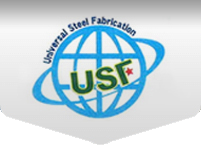
European buyers of strip mill products slowly started to partially accept the proposed mill price hikes, in mid/late December 2019. The conclusion of a prolonged destocking phase led to an improvement in apparent demand. Moreover, the production cuts, carried out by domestic steelmakers, in the latter part of 2019, started to tighten availability and extend delivery lead times. Third country suppliers began to lift their prices, due to increased raw material costs. Currently, import quotations are at a premium of around €30 per tonne to domestic offers, leaving European buyers with fewer alternative sources of supply.
The steel market, in the early part of January 2020, was slow, as companies returned from the extended Christmas/New Year celebrations. Any upturn in economic activity is predicted to be modest, in the medium term. Buyers are wary, fearing that, unless real demand improves significantly, the price increases are unsustainable. Nevertheless, the producers continue to talk prices upwards.
The German market remained quiet, in early January. Mills declare that they have good order books. The capacity reductions carried out in the latter half of 2019, had a positive effect on strip mill product prices. No significant import activity was noted. Domestic steelmakers are pushing for further increases in late first quarter/early second quarter.
French strip mill product prices began to move up in mid/late December 2019. Activity picked up ahead of the Christmas vacation. Mills’ order books improved. As a result, delivery lead times extended. EU producers are now looking to implement further price rises of €20/40 per tonne. Mill sales in January started quite slowly. The downstream market is more active and distributors expect business to remain satisfactory. However, demand from several sectors is likely to decline, compared with last year. Import quotations, which have risen significantly, are no longer competitive.
Italian strip mill product figures reached the bottom, for this cycle, at the end of November 2019. They moved up a little at the start of December. During the last two weeks of the year, a partial revival of demand was noted, due to restocking activity. Prices continued to climb. Buyers realised that the steelmakers were determined to boost basis values in order to offset their rising raw material expenditure. The mills also benefitted from reduced third country import disruption, as most global suppliers lifted their quotations. Delivery lead times are extending because of earlier production cuts, plus mill stoppages/outages during the Christmas vacation period. Suppliers propose further price hikes. Service centres continue to struggle to make acceptable profit margins. The economic outlook is poor.
UK manufacturing output continued to deteriorate, in December. Nevertheless, a number of steel distributors were busy in the run-up to Christmas. Order intake, since the holiday, is reasonable. Negative sentiment has dissipated since the general election. Strip mill product suppliers are increasing prices. Several deals were concluded, in late December, at basis values around £30 per tonne higher than during previous settlements. Further hikes are being proposed but buyers question whether these are sustainable, unless demand improves substantially. Customers are reluctant to place large forward orders.
A number of positive price developments took place in the Belgian market, during mid/late December. Mills, globally, took advantage of rising input costs to advance their steel prices. In Belgium, steel buyers, finally acknowledged the need to pay more, albeit, less than steelmakers proposed. This enabled purchasing activity to continue. However, buyers question the assertion that real demand has changed significantly. Further price hikes uncertain in the current market conditions.
Spanish demand for strip mill products is, currently, stable. Basis values recovered, in January. The upward price momentum started in mid-December and has been maintained, on the return from the local holidays. Destocking was underway, in early December. Now, companies need to re-order. Producers are demanding increased prices for March deliveries and even increased prices for April. However, cheap material, from third country sources, booked in October/November, is starting to arrive. This could act as a buffer against further domestic price hikes.

 UNIVERSAL STEEL FABRICATION VINA - JAPAN CO., LTD
UNIVERSAL STEEL FABRICATION VINA - JAPAN CO., LTD


